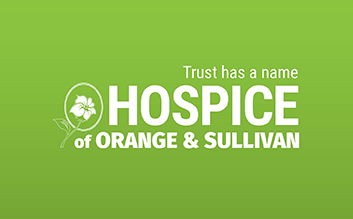
Difficult Conversations: How and When to Talk About Hospice Care
 Family members, caregivers, and close friends often feel uncomfortable talking about end-of-life care. But these may be some of the most important conversations we have. If we avoid talking about death, how will we know what our loved ones want?
Family members, caregivers, and close friends often feel uncomfortable talking about end-of-life care. But these may be some of the most important conversations we have. If we avoid talking about death, how will we know what our loved ones want?
It’s OK to talk about end-of-life wishes. Talking about the option of hospice care does not mean nothing else can be done. Hospice is about approaching life with hope, spending time, and focusing energy on life’s most important issues and the people we love.
Hospice can be provided when a cure is no longer possible, and it is believed a patient has six months or less to live. Unfortunately, many people enter the program too late to fully benefit from many services available to them and their families.
Many hospice professionals suggest that a person thinks about hospice long before facing a medical crisis. As you consider having a conversation about what you do or do not want at the end of life, consider who to speak with, when to have the conversation and how to broach the subject.
When should you start the conversation?
Several events can trigger a conversation about hospice care:
- When a loved one has been diagnosed with a terminal illness
- When a loved one has experienced repeated trips to the emergency room or hospitalizations
- When a loved one’s condition has steadily or significantly declined
- When a loved one is discouraged by, tired from, or requests no further treatment
- When a physician suggests hospice care during a routine visit
How do you start the conversation?
As with any serious topic, beginning the conversation can be difficult, but creating an optimal time and place or looking for cues can ease the discussion.
Choose a private, relaxed time, free from distractions. Look for an opening; listen for comments about the condition, about giving up, being tired of trips to the hospital, or just wanting to be comfortable. A natural time when families tend to gather is during the holidays; embrace your discomfort and start the conversation.
Try these conversation starters:
- “That last hospital stay seemed hard on you. I think there’s a way we can avoid future hospitalizations.”
- “We can manage your care right here, at home.”
- “You don’t have to be in pain anymore; Hospice can help. They’re experts in pain management and caring for people with this illness.”
- “Lately, you seem to be struggling more with breathing, walking, and eating.”
- “I’d like to call Hospice for you so we can see how they might be able to help you.”
Suppose there is resistance, which can often be the case when first suggested, accept, and don’t push the conversation. Wait for another time when it presents itself. Your opinions and wishes may differ from your loved one, family members, and friends.
Talking about hospice doesn’t have to be difficult. Conversations about death and end-of-life aren’t necessarily easy to have, but they are critical to the well-being of those we love. Finding a way around the awkward talk will bring great comfort to your loved one, caregivers, and family.
You are Never Alone
You and your loved ones don’t have to do this alone. At Hospice of Orange and Sullivan Counties, Inc., we understand how challenging this time can be. If you or a loved one is seeking hospice care or has questions about hospice care, contact Hospice of Orange & Sullivan Counties, Inc.
